- US FDA approve GSK’s blood cancer treatment Reuters
- FDA delivers split decision on GSK’s blood cancer drug Blenrep, approving its use in some cases statnews.com
- Belantamab Mafodotin Can Help Fill Access Gaps in BCMA-Directed Myeloma Therapy: Hearn Jay Cho, MD, PhD AJMC
- Blenrep approved by US FDA for use in treatment of relapsed/refractory multiple myeloma Stock Titan
- Cancer Drug Pulled From the Market Regains FDA Approval MedPage Today
Blog
-
US FDA approve GSK's blood cancer treatment – Reuters
-

More than 1,700 deaths recorded between January and mid-October, an ‘epidemic of alarming intensity’: MSF
In a press release published Wednesday, October 22, 2025, Médecins Sans Frontières (MSF) warned of the “alarming intensity” of the cholera epidemic in the Democratic Republic of Congo (DRC).
According to the statement, the DRC has recorded…
Continue Reading
-
Australia says H5 bird flu suspected in sub-Antarctic island – Reuters
- Australia says H5 bird flu suspected in sub-Antarctic island Reuters
- News live: fears highly contagious strain of H5 bird flu infected elephant seals on remote Australian island The Guardian
- Australia news LIVE: US looks to set up naval base in…
Continue Reading
-
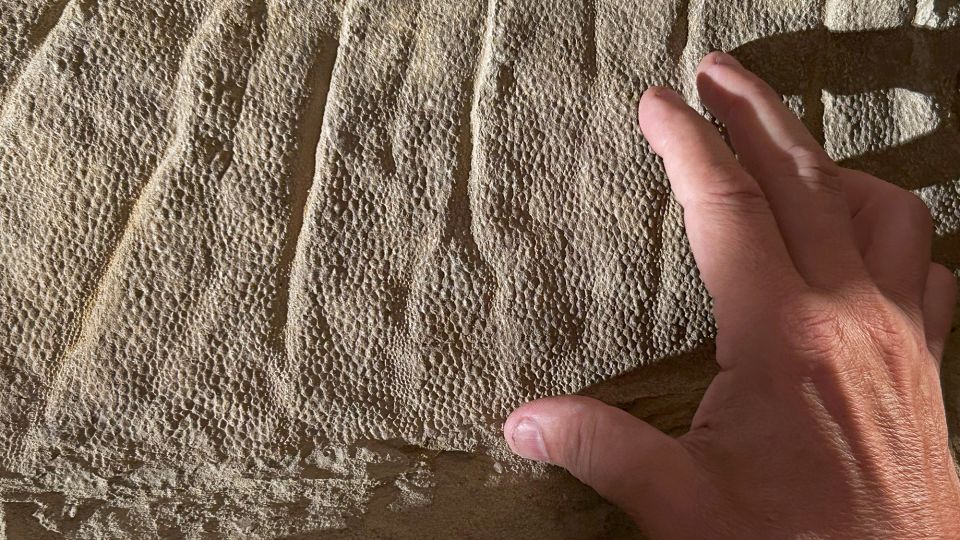
66 million-year-old dinosaur ‘mummy’ skin was actually a perfect clay mask
In the badlands of eastern Wyoming, the Lance Formation is a trove of prehistoric fossils. And one area in particular — a region less than 10 kilometers (6 miles) across — has provided scientists with at least half a dozen remarkably…
Continue Reading
-
Intel beats third-quarter profit estimates as cost cuts, investments pay off – Reuters
- Intel beats third-quarter profit estimates as cost cuts, investments pay off Reuters
- With an Intel recovery underway, all eyes turn to its foundry business TechCrunch
- Intel’s Q3 results show signs of recovery — and restraint qz.com
- Intel Stock Soars as Chipmaker Swings to a Profit Investopedia
- Intel Corp reports results for the quarter ended September 30 – Earnings Summary TradingView
Continue Reading
-
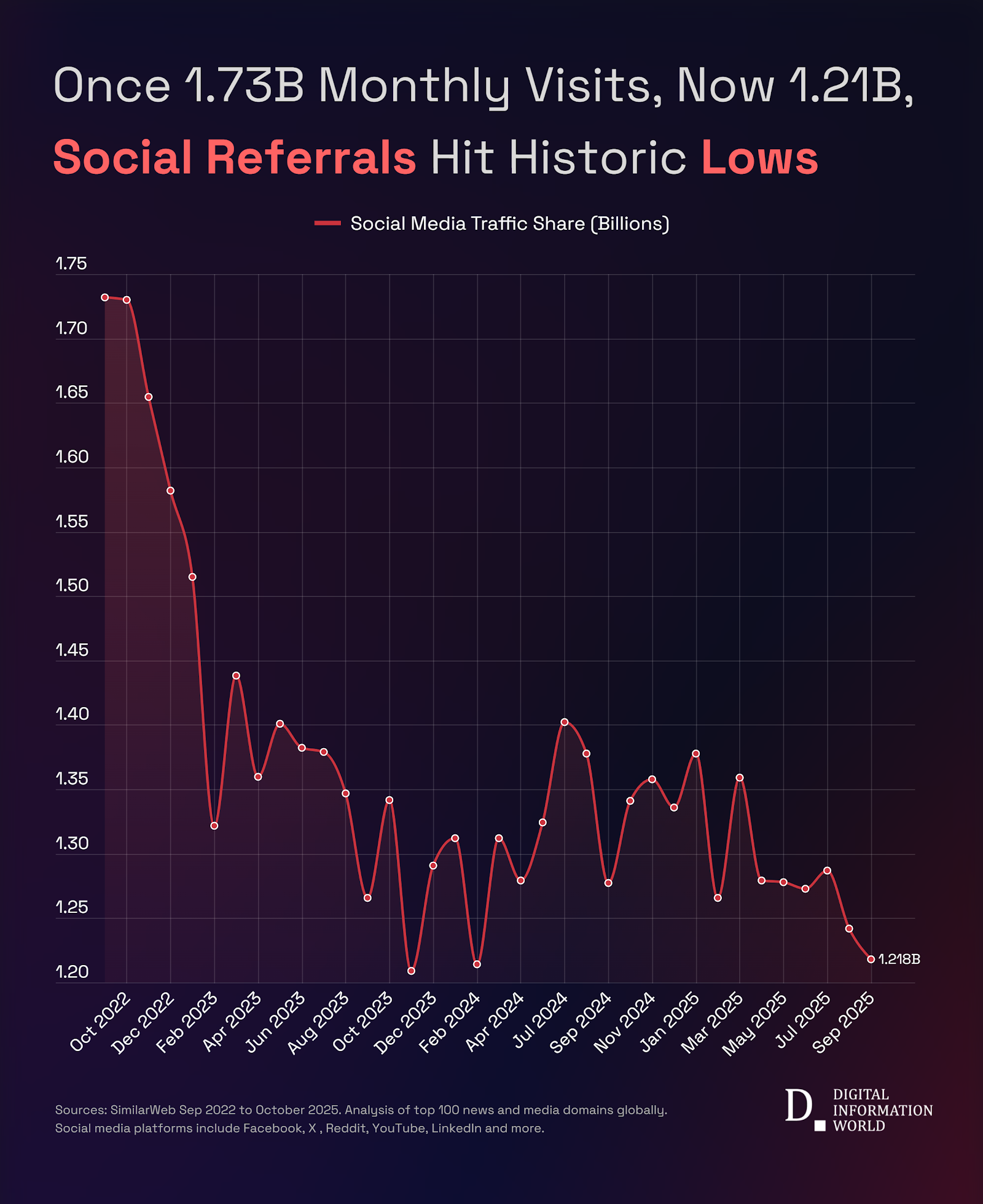
Social Media Sends Less Traffic to News Sites as Platforms Shift Away from Links
Traffic from social media platforms to news outlets has fallen by about a third in three years, as short-form video and in-app engagement replace link sharing.Over the past three years, social networks have sent far fewer readers to news sites….
Continue Reading
-

Peru reports cutaneous anthrax outbreak in Cañete
The Ministry of Health (Minsa), through the National Center for Epidemiology, Disease Prevention, and Control (CDC Peru), reported that six cases of human cutaneous anthrax have been confirmed in the province of Cañete, in people who allegedly…
Continue Reading
-
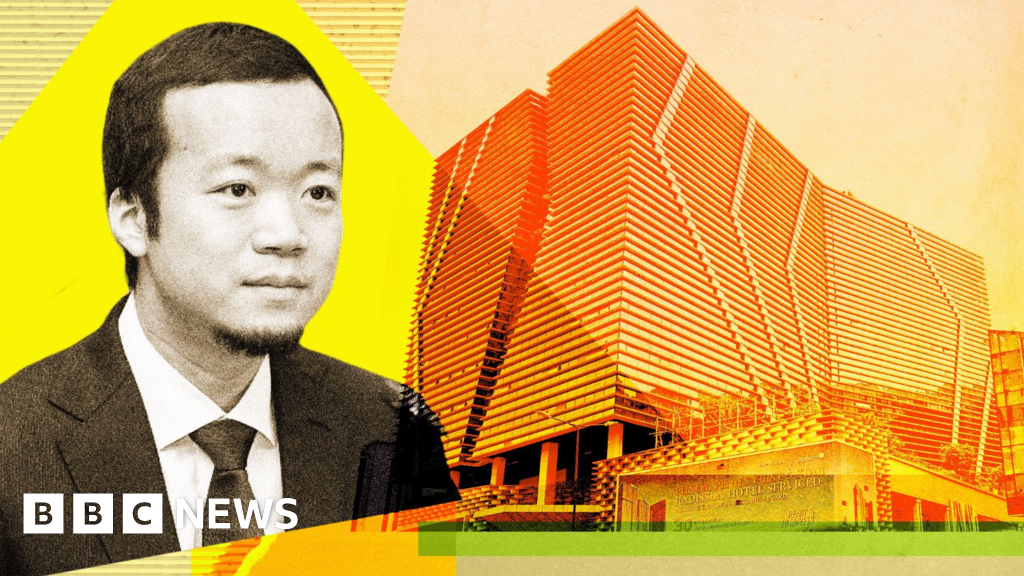
The mysterious ‘scam empire’ owner accused of stealing $14bn in crypto
Jonathan HeadSouth East Asia correspondent
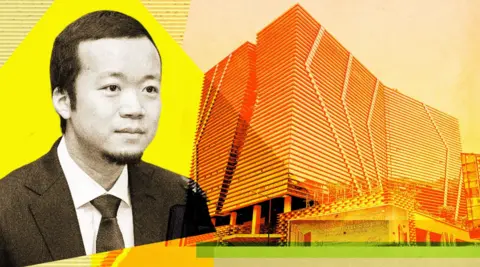 Prince Group/Getty images
Prince Group/Getty imagesJust 37 years old, Chen Zhi is accused of being “the mastermind behind a sprawling cyber-fraud empire… a criminal enterprise built on human suffering”.
With his wispy goatee beard and baby-faced features, he looks even younger than he is. He has certainly become very wealthy, very quickly.
Last week the US Department of Justice charged him with running scam compounds in Cambodia that stole billions in cryptocurrency from victims all over the world. The US Treasury Department has confiscated more than $14bn (£10.5bn) worth of bitcoin that it says is linked to him – it said this was the largest ever crypto-currency seizure.
His own company, the Cambodian Prince Group, describes him on its website as “a respected entrepreneur and renowned philanthropist” whose “vision and leadership have transformed Prince Group into a leading business group in Cambodia that adheres to international standards”. The BBC has contacted the Prince Group for comment.
So, how much do we know about Chen Zhi, the mysterious figure allegedly running a scam empire?
A startling rise
Brought up in Fujian province in south-eastern China, he started with a small, and apparently not very successful internet gaming company, and moved to Cambodia in either late 2010 or 2011, where he began working in the then-booming real estate sector.
His arrival coincided with the start of a speculative property boom in Cambodia. It was fuelled by the availability of large tracts of land expropriated by powerful, politically-connected figures and by a flood of Chinese capital.
Some of it was pouring in on the tail end of Xi Jinping’s Belt and Road Initiative to export Chinese-made infrastructure, and some of it was from individual Chinese investors seeking more affordable alternatives to China’s overheated property market. The number of Chinese tourists visiting Cambodia was also rising fast.
The skyline of the capital Phnom Penh changed dramatically. The characterful, low-rise cityscape of mustard-coloured French colonial mansions was transformed into another Asian high-rise forest of glass and steel towers.
The transformation of Sihanoukville, a once quiet little seaside resort, was even more extreme. It was not just Chinese holidaymakers and property speculators heading there, but also gamblers – gambling is illegal in China.
New casinos sprang up, alongside gaudy, luxury hotels and apartment blocks. There was plenty of money to be made.
Even so, Chen Zhi’s trajectory was startling.
In 2014 he became a Cambodian citizen, giving up his Chinese nationality. This enabled him to buy land in his own name, but required a minimum investment or donation to the government of $250,000.
It was never clear where Chen Zhi’s money came from. When applying for a bank account on the Isle of Man in 2019 he listed an unnamed uncle who he said had given him $2m to start his first property company in 2011, but no evidence for this was ever provided.
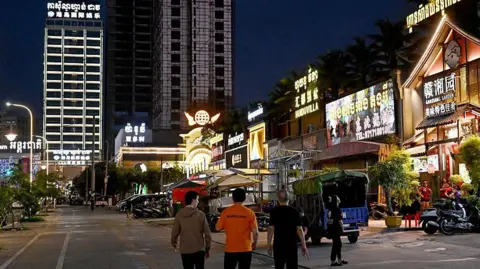 Getty Images
Getty ImagesSihanoukville has been transformed by Chinese investment Chen Zhi founded the Prince Group in 2015, focused on property development, when he was still only 27 years old.
He got a commercial banking licence in 2018 to establish Prince Bank. The same year he obtained a Cypriot passport, in return for a minimum investment there of $2.5m, giving him easy access to the European Union. He later acquired Vanuatu citizenship as well.
He started Cambodia’s third airline, and in 2020 obtained a certificate to operate a fourth. There were luxury malls in Phnom Penh built by the Prince property arm, five-star hotels in Sihanoukville, and an ambitious scheme to construct a $16bn “eco-city” called “Bay of Lights” there.
In 2020 Chen Zhi was awarded the highest title bestowed by Cambodia’s king, that of “Neak Oknha”, which requires a donation of at least $500,000 to the government.
He had already been made an official adviser to Interior Minister Sar Kheng since 2017, was a business partner with his son Sar Sokha, and an official adviser to Cambodia’s most powerful man Hun Sen, and later his son Hun Manet after he succeeded his father as prime minister in 2023.
Chen Zhi was lauded in the local media as a philanthropist, who had funded scholarships for low-income students and donated substantially to help Cambodia deal with the Covid pandemic.
Yet he remained an enigmatic figure, staying out of the limelight, making few public statements.
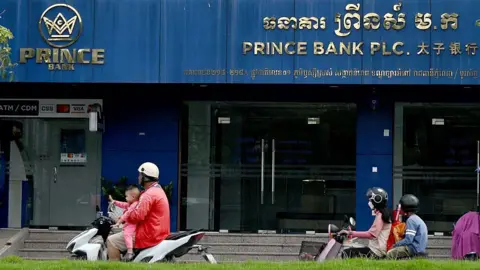 AFP via Getty Images
AFP via Getty ImagesA branch of the Prince Bank in Phnom Penh “Everyone I’ve spoken to who’s worked with him directly, been in the room with him, they all describe him as very courteous, very calm, very measured,” says Jack Adamovic Davies, a journalist who did a three year-long investigation of Chen Zhi which was published by Radio Free Asia last year.
“I think not being the kind of flamboyant person that people will write tabloid-y things about was smart. Even those who no longer want to be associated with him are still impressed by his quiet charisma, his gravitas.”
But where was all this wealth and power coming from?
‘A litany of transnational crimes’
In 2019 the property bubble burst in Sihanoukville. The online gambling business had attracted Chinese criminal syndicates, who then began violent turf wars with each other. Tourists were scared off.
Under pressure from China, then-prime minister Hun Sen banned online gambling in August that year. Around 450,000 Chinese left the city as its main business collapsed. Many of Prince Group’s residential blocks were left empty.
Yet Chen Zhi continued to expand his business interests and spend freely.
According to the UK authorities, in 2019 he bought a £12m mansion in north London and a £95m office block in the city’s financial district. The US says he and his associates bought properties in New York, private jets and superyachts, and a Picasso painting.
And, they allege, Chen Zhi’s wealth came from the most profitable business in Asia today, online fraud, and the human trafficking and money laundering that go with it.
The US and UK have imposed sanctions on 128 companies linked to Chen Zhi and Prince Group, and on 17 individuals from seven different nationalities who they allege helped run his scam empire. Assets linked to Chen Zhi in the US and UK have been frozen.
 US District Court EDNY
US District Court EDNYCourt documents contained images of “phone farms” allegedly used to conduct scams The sanctions announcement describes an elaborate web of shell companies and cryptocurrency wallets through which money was moved to conceal its origins.
It says: “Prince Group Transnational Crime Organisation profits from a litany of transnational crimes including sextortion – a type of fraud involving the solicitation for eventual blackmail of sexually explicit materials, often from minors – money laundering, various frauds and rackets, corruption, illegal online gambling, and the industrial-scale trafficking, torture, and extortion of enslaved workers in furtherance of the operation of at least 10 scam compounds in Cambodia.”
The ‘scam empire’
China too had been quietly investigating the Prince Group since at least 2020. There have been a number of court cases accusing the company of running online fraud schemes.
The Beijing Municipal Public Security Bureau has established a task force “to investigate the “Prince Group, a major transnational online gambling syndicate based in Cambodia”.
At its heart, the US and UK allege, were businesses like Golden Fortune Science and Technology Park, a compound built by the Prince Group in Chrey Thom, close to the Vietnamese border.
In the past the Prince Group has denied any involvement in scams, and said it no longer has any connection to Golden Fortune, but the US and UK investigation argues that there is still a clear business link between them.
Mr Adamovic Davies interviewed a number of people living and working near Golden Fortune for his investigation into Chen Zhi. They described brutal beatings of the mainly Chinese, Vietnamese and Malaysians who tried to escape from the compound, where they were forced to run online scams.
“I think it’s the sheer scale of his operations which really makes Chen Zhi stand out,” he says, adding that it is shocking the Prince Group was able to build a “global footprint” without raising alarm bells given the serious criminal charges it now faces.
“What should be uncomfortable for a lot of people is that Chen Zhi should never have been able to acquire all these assets, in Singapore, London or the US. Lawyers, accountants, real estate agents, bankers, all should have been looking at this group and saying, hang on, this doesn’t add up. And they didn’t.”
 AFP via Getty Images
AFP via Getty ImagesThe Prince International Plaza in Phnom Penh Today, after all the publicity generated by the US and UK sanctions, businesses are rushing to dissociate themselves from the Prince Group.
The Cambodian Central Bank has had to issue a statement to nervous depositors assuring them they will be able to withdraw their funds from Prince Bank. The South Korean authorities have frozen $64m of its deposits held by Korean banks.
The Singapore and Thai governments are promising investigations into Prince subsidiaries in their jurisdictions – of the 18 individuals targeted by the US and UK, three are Singaporeans.
Cambodia’s government has said little, apart from urging the US and UK authorities to be sure they have sufficient evidence for their allegations.
But it will be difficult for Cambodia’s ruling elite to distance themselves from Chen Zhi, after being so close to him for so long. Cambodia was already facing growing pressure over its tolerance of scam businesses, which some estimate may account for around half of the entire economy.
And what of Chen Zhi himself?
Nothing has been heard or seen of him since the sanctions were announced last week. The enigmatic tycoon, once among the most powerful figures in Cambodia, appears to have vanished.
Continue Reading
-

Meghan Markle teases new ‘As Ever’ range in refreshing video: Watch
Meghan Markle teases new ‘As Ever’ range in refreshing video: Watch Meghan Markle is teasing a new update for ‘As Ever’ fans.
The Duchess of Sussex, who took a hiatus in rolling out her lifestyle products, is bck…
Continue Reading
-

Stellan Skarsgard Opens Up About Acting Struggles After Stroke
Three years after Stellan Skarsgard suffered a significant stroke, he opened up about how the medical emergency has created challenges in his acting career.
“I found a way,” Skarsgard told Vulture about how he remembers his lines in an…
Continue Reading
